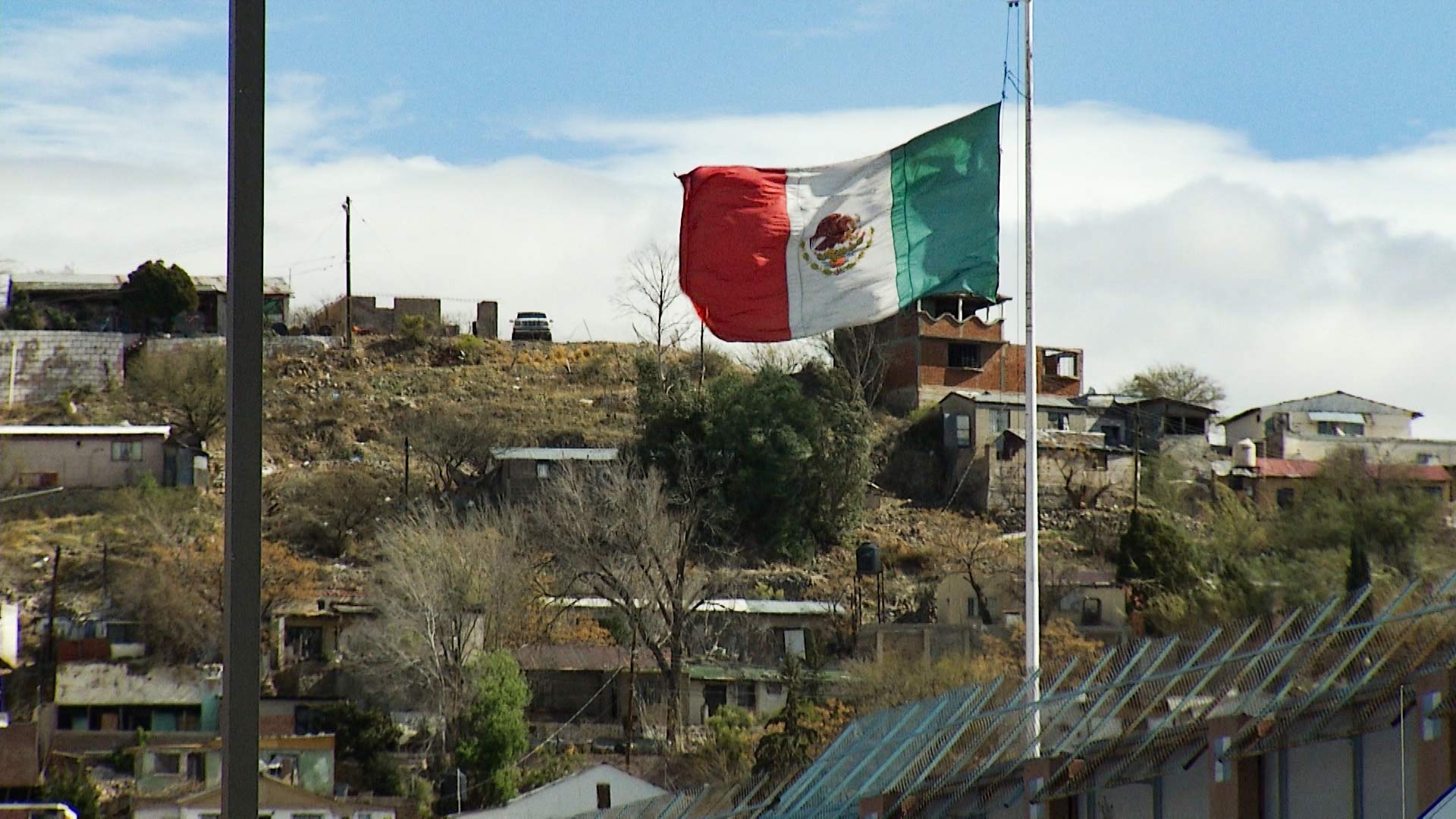 The Mexican flag flies in Nogales, Sonora.
The Mexican flag flies in Nogales, Sonora.
MEXICO CITY — Weeks ago, the U.S. federal government unconventionally deployed the national guard to the Mexican border, waiting for the Central American migrant caravan. And in Mexico, the entering administration plans to create a national guard that might operate on the border.
The security plan from Mexico’s new administration includes the creation of a national guard. During his campaign, President-elect Andrés Manuel López Obrador promised the contrary: to take the army off the streets.
Erik Rojo is a security consultant based in Mexico City and a retired colonel from the U.S. army. He says that, despite the controversy, the strategy might be the best choice.
“During the campaign they were talking the army out of the streets, but I guess they realized that the police in Mexico are ineffective,” Rojo said. “It is a contradiction because everybody wants the army to go back and do what they’re supposed to do, but reality check indicates that there’s no alternative because not much has been done.”
The veteran said the plan not only resembles operations in the United States, but it is also something the Mexican Constitution has contemplated for decades.
“It is something similar to the American National Guard, saying that each state can organize a militia under officers, under state control, but they can be called to federal duty, just like the federal guard in the United States,” Rojo explained.
The Mexican elect-president says the national guard would supervise peace. But critics say it will bring militarization to the country, including to its borders. Rojo thinks the new national guard might not affect the security operations shared by Mexico and the U.S., but it could help by bringing legitimacy to the Mexican side.
“The problem of Mexico is the lack of rule of law, where we see that corrupt officials allow the drugs to go by easier, we see the problem right now that the illegal migrants from Central America get a free pass from Mexico, so a figure of a national guard that may do or do nothing is not going to affect the relationship,” said Rojo.
The security expert said the war on drugs already forced Mexico to have a professional army, but the country still needs to professionalize the police to eradicate corruption and violence.
“In the end, insecurity is still the nightmare of every Mexican,” said Rojo.
Mexico’s new security plan is still under scrutiny, while the president-elect takes office on Dec. 1.


By submitting your comments, you hereby give AZPM the right to post your comments and potentially use them in any other form of media operated by this institution.